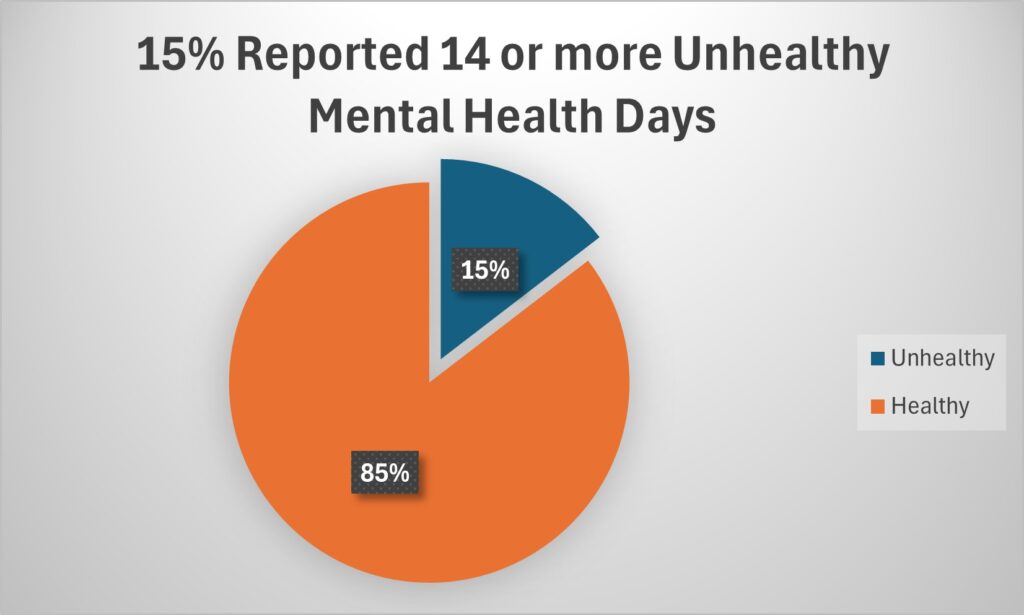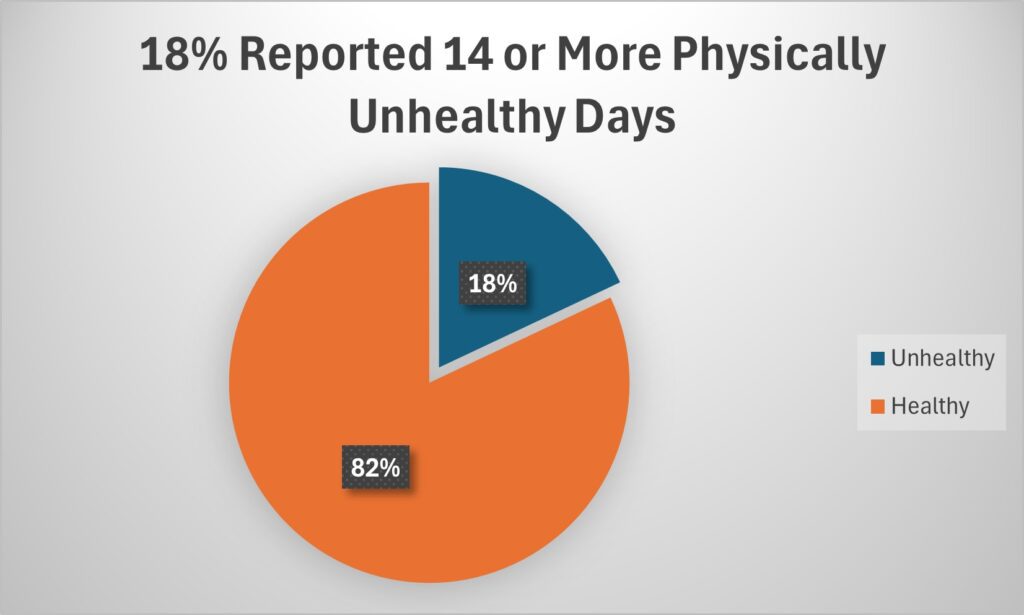Caregiving Can Kill You!
 Submitted by Nancy Poland
Submitted by Nancy Poland
Grace’s Message
What a terrible title for an article, you may be thinking. After all, we will likely be caregivers sometime in our life.
First Lady Rosalynn Carter’s famous quote reminds us:
There are only four kinds of people in the world — those that have been caregivers, those that are caregivers, those who will be caregivers, and those who will need caregivers.
I was speaking to a group about caregiving when one lady lamented, “My mom is so sick with cancer, I feel guilty when I do anything enjoyable.” Sad but true, and we can relate to how she feels.
When I was caring for my dad, diagnosed with dementia, and my mom, having multiple issues including kidney cancer and spine deterioration, I forgot important self-care steps. These included missing dental appointments, not scheduling a mammogram, and cancelling outings with friends.
In Remarkable Caregiving: The Care of Family and Friends, you will find a story of Sandra and Ken. Sandra’s dad had Parkinson’s; they took care of him in their home four years. We read:
At times, when her husband could see Sandra reaching a breaking point he would say, “I’m going to take care of Dad Friday night, and you go to a hotel.”
Selfish or self-care? The answer is apparent to those of us looking in. Not so apparent when we are the caregiver.
How Can Caregiving Cause Such Harm?
If you accept caregiving can be deadly, would you still be a care partner for a spouse, a parent, a friend? Let us look at a few statistics, and how they become personal. Here are quick facts from a Centers for Disease Control study surveying caregivers (statistics are rounded and based on a monthly timeframe.)

15% does not seem too unreasonable. Until I was part of that 15%. My mom had passed away eight months prior, and caring for dad-with-dementia was overwhelming. I cried frequently and became chronically depressed. When my eyes welled up with tears at work because my computer would not boot up, I realized this was not normal.
I sought medical care and started on antidepressants. (Clearly, I was grieving my mom’s passing and my dad’s ever-increasing dementia.)

18% is not good, especially when it was me again! My dad caught a serious stomach ailment the same week our mother was dying. I caught his bug and spent my mom’s visitation and funeral full of Pepto Bismol hoping to not get sick at the service. (Sorry for the visual.)
One more set of pie charts. These numbers represent the percentage of caregivers reporting coronary heart disease and/or stroke.
 |
 |
The percentage of female caregivers with coronary issues is “only 12%.” Unfortunately, my mom was part of that 12% when she had a mild stroke at 59 caring for her aging parents.
“Take care of yourself” should not be a platitude we share with the caregiver. Guilt, exhaustion, and burnout lead to stress, disease, and sometimes death. We must take caregiving and its effects seriously.
What Can a Caregiver Do to Address Their Needs?
You do not have time to research these options? Assign this task to a family member out of town, or a neighbor who wants to help. People often want to help but do not know how.
First and foremost, ask for and accept help.
Faith Communities, family members, or community groups may have people who will bring over a casserole, sit with your loved one so you can go out, or run errands for you. Your county may have help for aging adults or young people with disabilities.
Respite can be a lifesaver.
It may be a formal arrangement, such as sending your loved one to a care home for several days. Sandra in our story had her adult daughter care for her dad while Ken and she went on vacation.
Maintain your personal relationships.
Do not lose your friendships in the shuffle of caregiving. These relationships will sustain you and keep you positive. If it is difficult to leave the house, invite friends over for coffee, an afternoon beverage, or have a pizza delivered. Even a phone call can lift your spirits.
Nurture your spiritual side.
Connecting with a faith community can give you hope and build relationships. I have found my faith has carried me through multiple seasons of distress.
Share your feelings.
The simple act of expressing what you are going through can be cathartic. Sharing your feelings with family or friends should not make you a burden to others. To share in a more structured setting, caregiving groups will link you up with others experiencing your hope and pain.
Engage in activities that bring you enjoyment.
Make time for hobbies such as reading, working in the garden, tinkering in your workshop, knitting, playing with the dogs, or watching a ballgame. Activities could be shared with a care recipient.
Find ways to pamper yourself.
Small luxuries can go a long way towards relieving stress and boosting your spirits. Light candles and take a long bath. Buy fresh flowers for the house. Get a manicure. Meet your buddies and watch a ball game at someone’s house or at a local sports bar (guys, this means you too!) Whatever makes you feel special.
Make yourself laugh.
Laughter is an excellent antidote to stress—and a little goes a long way. Read a funny book, watch a comedy, pull up a humorous YouTube video, or call a friend who makes you laugh. Find humor in everyday situations.
My dad loved to hear old family jokes and stories. I would remind him of the time I told him about my relationship with my husband-to-be, John. My dad’s first question was, “Does he have a job?” We would laugh about that, even later in life when my dad had dificulty communicating.

Can You Truly Die from Caregiving?
In another story in “Remarkable Caregiving” you will read about a husband who cared for his wife with Alzheimer’s, mostly alone, as they moved to another state than their children. He died first. Yes, it does happen, and it caused acute problems for his family.
What percentage of caregivers die before their care recipient, especially when caring for someone with dementia? Studies give us varying numbers.
One 2018 study cited by the National Library of Medicine found 18% of the of the caregivers of spouses with Alzheimer’s disease or related dementia died before their spouse.
Another study by Stanford Medicine study found “some 40 percent of Alzheimer’s caregivers die before the patient. It isn’t disease or accident that takes these caregivers, but rather the sheer physical, spiritual and emotional toll of caring for someone struggling with the Alzheimer’s.”
Whether it be 18%, 40%, or another number, what we know is stress leads to heart disease, strokes, and other potentially fatal diseases. Are you tempted to say, “Take care of yourself, caregiver!” Instead offer ideas from this article, lend them a hand, and work with them to find ways to practice self-care.
Caring for my parents was tiring, stressful, and affected my health. Would I trade the experience for anything? No. It was an honor to help shepherd my parents through their later years and end of life.
If you are a caregiver, know a caregiver, or see caregiving in your future, take time to learn about the effects of caregiving and how selfcare can make a healthier, more effective caregiver.
In addition to sharing stories and tips for caregivers in Remarkable Caregiving, I wrote Dancing with Lewy: A Father Daughter Dance Before and After Lewy Body Dementia Came to Live with Us. In this book you will read about my personal caregiving struggles, and how I finally learned forgiveness and grace. Check out my website, Grace’s Message for caregiving resources and stories of grace and hope.
 Submitted by Nancy Poland
Submitted by Nancy Poland
Grace’s Message


